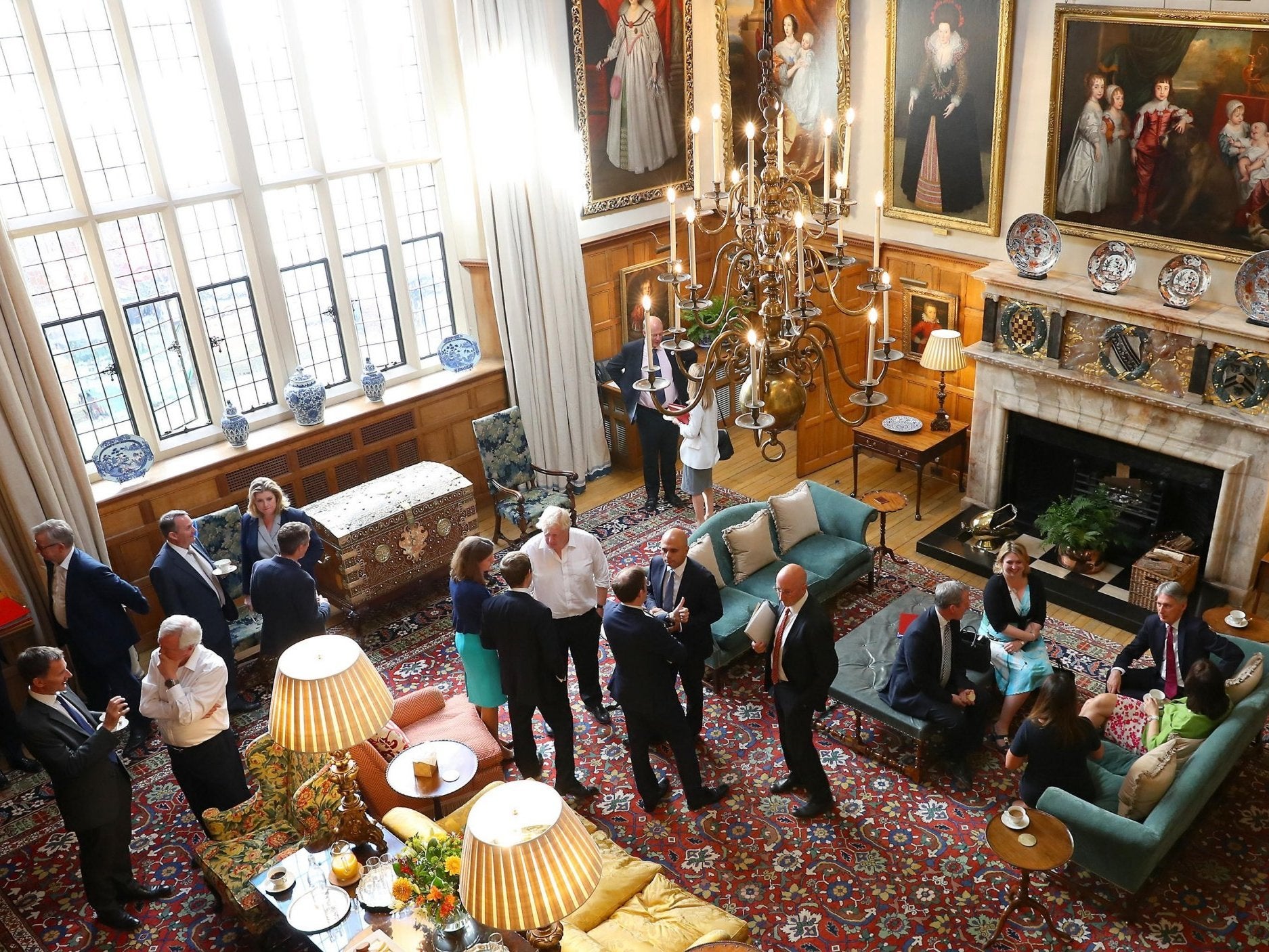Two cheers for Theresa May’s step towards Brexit clarity at Chequers
The cabinet agreement does at least mean that there is a chance that Britain might leave the EU in a way that minimises the economic damage

Your support helps us to tell the story
From reproductive rights to climate change to Big Tech, The Independent is on the ground when the story is developing. Whether it's investigating the financials of Elon Musk's pro-Trump PAC or producing our latest documentary, 'The A Word', which shines a light on the American women fighting for reproductive rights, we know how important it is to parse out the facts from the messaging.
At such a critical moment in US history, we need reporters on the ground. Your donation allows us to keep sending journalists to speak to both sides of the story.
The Independent is trusted by Americans across the entire political spectrum. And unlike many other quality news outlets, we choose not to lock Americans out of our reporting and analysis with paywalls. We believe quality journalism should be available to everyone, paid for by those who can afford it.
Your support makes all the difference.The Independent called for honesty before the all-day cabinet meeting at Chequers on Friday, and to some extent Theresa May rose to the challenge. She finally spelled out some irresistible facts to her resistant colleagues.
She set out the choices facing the United Kingdom in its negotiations with the European Union with more clarity than before. This cruelly exposed the hard Brexiteers’ lack of an alternative plan. It would seem that Boris Johnson, the foreign secretary, had reluctantly conceded as much at a caucus meeting of seven Eurosceptic ministers in the Foreign Office the night before.
It has taken eight months for these guardians of the true Brexit flame to realise that it went out when the prime minister agreed to an open border in Ireland. They did not resign then and so they must accept the consequence – namely that the Canada-style free trade agreement they want is not possible. They have spent eight months wishing the border problem away with magical technology, but now they have had to accept Ms May’s non-magical solution.
Mr Johnson’s surrender cleared the way for Ms May to do what we have been urging her to for a long time: to make a decision and defy the resisters to do their worst. There are still large elements of fudge in the government’s position set out yesterday, but broadly speaking the choice has been made.
We argued that the government should seek regulatory alignment with the EU and a customs union. That is not what the prime minister calls her plan. The latest rebranding is a “facilitated customs arrangement”, but the giveaway phrase in the government’s statement is that it would remove the need for customs checks between the UK and the EU “as if a combined customs territory”. That is in effect a customs union.
Not complete candour from Ms May, then, but an important step towards clarity. And, as she wrote to Conservative MPs last night, “collective responsibility is now fully restored”. That means Mr Johnson is no longer allowed to speculate about what government policy might become, or she might finally do what she should have done long ago and appoint a foreign secretary who does not disagree with her in public.
For now, it seems that Mr Johnson has accepted the argument of the pragmatic Brexiters that the important thing is to leave the EU and then they can seek to realise their vision of a free trading global Britain. What ought to matter to them about “Brexit in name only” is the “Brexit” bit.
The position set out by the prime minister at Chequers is not perfect, and it should have been agreed months ago, but at least the government does have the semblance of a united and pragmatic position to put to the EU side in the negotiations. Ms May deserves muted applause for what she achieved yesterday, but it should not have been that difficult and it does not necessarily mean that she will get what she wants in the talks to come. It does at least mean that there is a chance that Britain might leave the EU in a way that minimises the economic damage.
Yet the real challenge remains negotiating not with her colleagues but with the EU, which has already said that splitting goods (which would be in the new customs arrangement) from services (which would not) is unacceptable.
This game is still heading towards extra time, even if the worst penalties now seem less likely.
Join our commenting forum
Join thought-provoking conversations, follow other Independent readers and see their replies
Comments